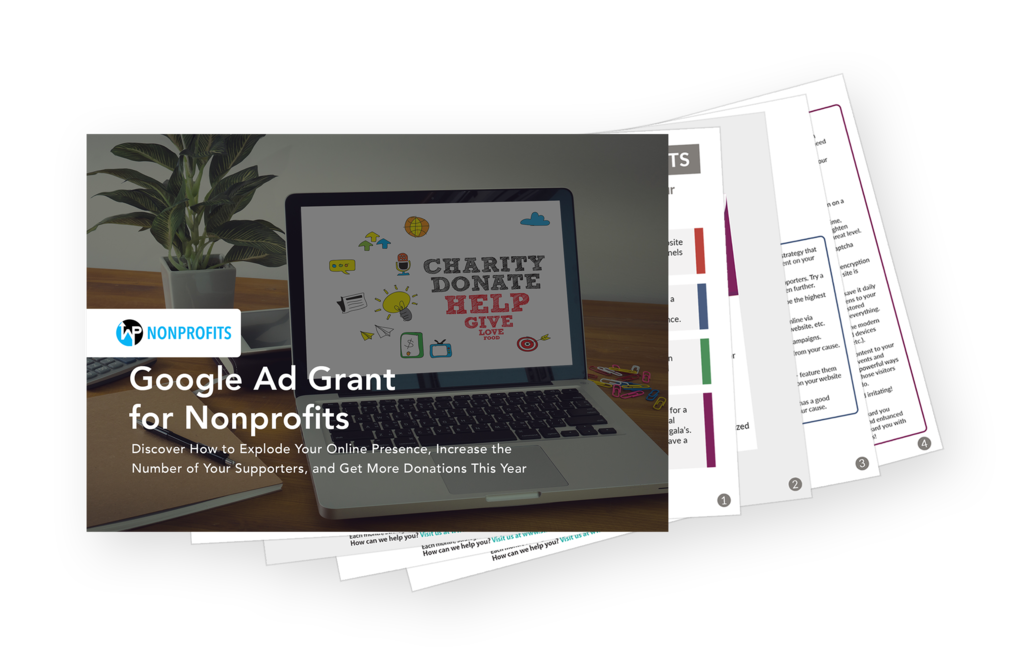

Are you standing in the way of reaching your fundraising goals?
That question is enough to stop you right in your tracks.
Are you standing in the way of reaching your fundraising goals?
Whether you recognize it or not, the answer in a lot of cases is yes. There are 3 common ways that fundraising professionals block their own paths:
- Overambition
- Asking the wrong way
- Lack of donor experience
So, how do you get out of your own way?
Become less overambitious (where it counts):
In our experience and opinion, fundraisers have the most brilliant minds. They’re creative, dedicated, and ambitious. Those traits are the backbones of most organizations. However, those traits can also be what damage your fundraising.
They tend to be what overworks fundraisers. So many hours are put into coming up with smaller events that will bring in subpar donations — not to mention how much energy is put into the planning. Events are great for community-building and comradery, but in reality, they will not be what brings in your biggest donations.
To become less overambitious where it counts, sit down with your budget. Get to know and understand your budget. Evaluate your actual need. What do you need to make your fiscal year and beyond successful? What are you trying to fund? How will you sustain yourself for a “rainy” future?
From there, take a look at your’s and your team’s time. See if it’s viable for you to be planning an event to be your big source of income, or plan an event to build a sense of community and then ask some bigger donors for a generous gift. Use that creativity! Please keep in mind every donor is valuable. All events should make every donor feel valuable, too.
When you set your goals with your budget and timing in mind, the rest will be a breeze.
Ask smarter:
Go back in your memory and think of a time when you asked for a donation. It could be when you were planning your big event, calling a corporate sponsor, or soliciting a gift from a large donor. Heck, it could’ve even been when you were selling chocolate for your sports team in middle school! How did you ask?
Was it along the lines of “if we had the money, we could do x, y, and z” OR “we need $___ so we can make x, y, and z happen.”
Most fundraisers, especially new fundraisers, tend to ask the first way — in passive language. However, you should always be using the second way — assertively.
If you use passive language such as “if we…”, you will not see the highest gift that someone is capable of giving. When a donor gives, they are giving what they think you need. Time and time again, donors low-ball your needs. Not because they don’t want to give, but because they simply don’t know your every day.
Provide them with what you ACTUALLY need with active language like “we need.” In fact, donors oftentimes can give at a much larger price, but they just need to know their money is being put to good use.
This leads us to our next point…
Create a donor experience:
Treat your donors like humans and not transactions.
Although we don’t necessarily need to elaborate, we will.
As you can imagine, many donors (especially those giving at a larger caliber) look at their donation as an investment. They like your organization, what it stands for, and what you do, so they choose to help continue to grow. In return, they like to see how their donation is impacting your organization.
Similarly, you will never have recurring donors or donors giving at a higher capacity if you don’t take the time to get to know them. Fundraising is all about relationship building, and when you’re in the weeds of planning your next fiscal year or fundraising event – it’s easy to lose sight of that.
If you need, we’ve heard from fundraisers that it’s helpful to block off an hour or two of their calendar to dedicate to making phone calls, texting, emailing, and grabbing coffee with donors. This is not even to ask for money. It’s to catch up. See how they’re doing, let them know what you’ve been up to. This is also extremely helpful so that when you need to ask for that big gift, it won’t feel icky to you or them.
Another huge way that a fundraising professional stands in their own way is by assuming. When looking for your next big donation, frequently fundraisers write people off, who may very well have the capacity to donate largely, but they’ve never been asked. Or again, they don’t know how much you need so they give what they think you’ll need.
Similarly, when board members are asked to reach out to their friends they say “I don’t know anyone with money like that” or “I don’t know anyone who would donate to this.” That very well may be true, but asking is the best way to find out if that is the truth or not.
We know there’s a lot of information here to digest, but this is a lot of good information. Not just because we wrote it 😉 . Following these proven steps will benefit your organization. You’ll see increased donations, recurring donors, and happy constituents. There’s truly nothing better than that…
















Giving Tuesday is coming! Start preparing today. | Website Development and Maintenance for Nonprofit Organizations says:
2020 Global Giving Trends | Website Development and Maintenance for Nonprofit Organizations says:
How Do I Reach Different Audiences for my Nonprofit? | Website Development and Maintenance for Non Profit Organizations says: